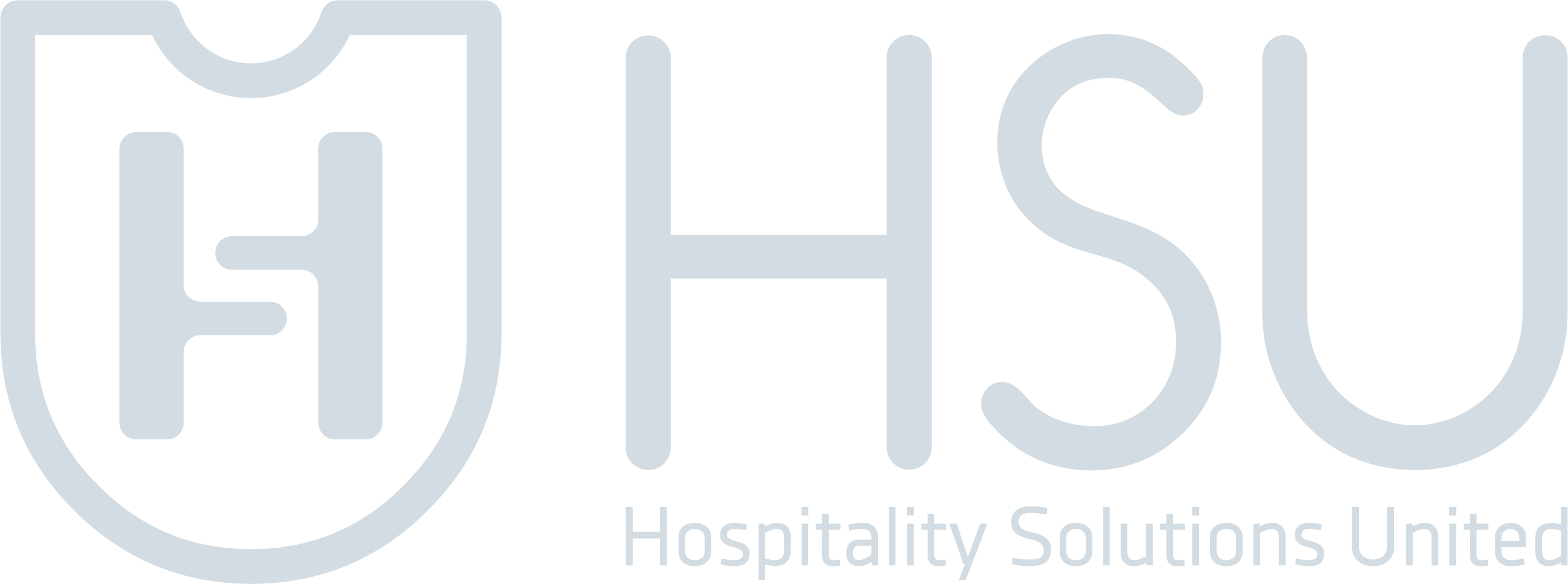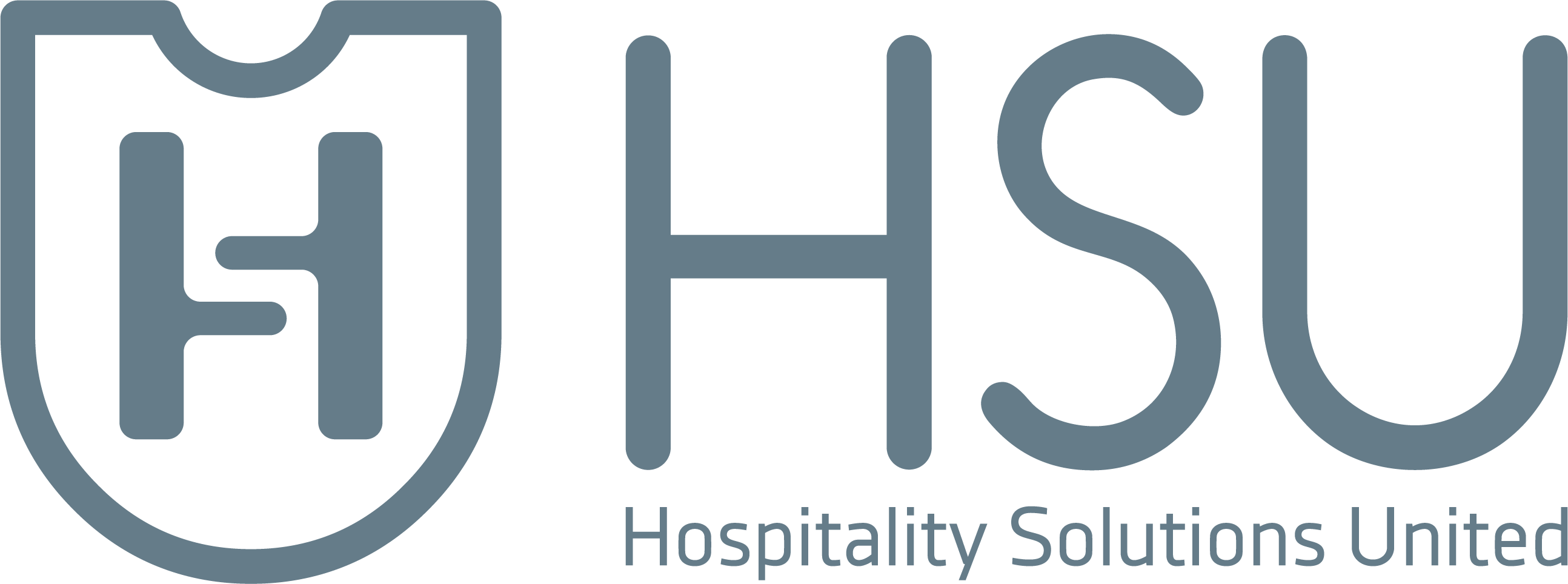About us

Hospitality Solutions United (HSU) is an Access Control System for the hospitality sector. This system provides quality products and adaptable software.
Our products have passed installation tests in a variety of climates, such as:
- Extremely hot temperatures
- Extremely cold temperatures
- Coated with a sprayed-on liquid salt solution
- A dusty environment
This intensive process provides guarantees a reliable and durable HSU product.
Products Advantages
- Outside handles feature a free-moving clutch mechanism. This eliminates the need for opening the lock forcefully.
- The internal handle features an anti-panic function. This ensures that the lock will always open from inside. Therefore, it will never prevent an emergency evacuation.
- Every lock features a standard mechanical cylinder.
- A double latch design prevents opening the lock by mechanical pressing.
- An alarm indicates when batteries are low or when the door is not closed completely.
- The lock opens from inside the room in the event that the door closes from the inside.
- It offers two modes, "hotel" and "office," which permits usage in hotel service spaces.
- It features a high-speed proximity reader (which functions at a rate of 0.25 seconds).
All electronic components utilize reliable materials protected by MIFARE cards. A secure compound seals these electronic components safely. This design prevents the corrosion of the electronic components and ensures trouble-free, longterm usage.
The combination of HSU hardware and software via MIFARE technology eliminates the need to bind proximity cards to each lock. It also provides intuitive access control for guests and staff, without the cumbersome process of reconfiguring the installed locks.
Software Advantages
- The cards store information in an encrypted format. Since MIFARE cards cannot be copied, they ensure total safety for the hotel and its guests.
- The cards are not hardwired to the locks. You may assign any card at any time to any lock without ever reprogramming the locks themselves.
- Locks do not carry information about the cards. This provides convenient flexibility for managing hotel Access Control Sytems.
- Guest and staff cards both grant access for specified periods of time. You may even preprogram cards to grant access to a room in the future (as when future guests book advance reservations).
- When a receptionist issues a card to a new guest, the associated room automatically blocks all keycards with prior access.
- Lost keys no longer present a problem since you may easily cancel lost cards an reprogram new ones.
- You may assign multiple keycards simultaneously for a single, shared room. You may even assign these simultaneous cards with varying timeframes and differing access privileges.
- You may issue guest or staff keys to multiple doors with a specified time period. For example, you may assign a key for multiple doors to a leader responsible for multiple children living in different rooms. Another example is assigning multiple doors to one keycard for technicians who service equipment in several rooms or, when inappropriate, granting such personnel a master keycard for all hotel rooms.
- You may issue a staff key that enables entry into all rooms free from privacy restrictions. For instance, if a guest has closed his or her latch, the staff key will not work in that case.
- You may issue keycards to maids granting room access only to certain rooms or floors and limited to their specified work shift. This will discourage staff from “checking in” a guest with these keys.
- You may install HSU hotel locks at points of entry into the hotel itself, into an entire building, or onto a floor.
- The HSU Hospitality Access Control System enables granting access to designated areas secured by an electronic lock. For example, you may grant access to the pool, either as part of their reservation or for an additional fee. These additional authorizations go onto the card directly at the reception desk.
- This system records all lock opening events throughout your building. Hotel staff may easily access this information via a simple, intuitive operating system.
- The systems operating software offers customizable rights and supports multiple languages, such as English, Spanish, French, Russian, etc.)
- You may use a wall reader controller for access points which are not classic doors. This controller installs on barriers, turnstiles, bolt locks, and doors equipped with electromagnetic locks.
HSU has developed a hotel PMS integration interface that takes into account the needs of running a hotel, aiding even the most experienced and advanced hoteliers.
HSU PMS Interface Advantages
- The interface middleware operates in a single database within the Access Control System. This allows the hotel to issue personal guest keys from the PMS. It provides further ability to generate reports on all data pertaining to the issue and usage of the card at all doors and access points throughout the hotel. This data includes the physical key number, as in most systems; but it also includes a section for guest names. This approach provides a synchronized reflection of the status of numbers in both the PMS and ACS. As such, a key issued from the PMS enjoys current status in the ACS and may be controlled from inside the ACS. This system performs full synchronization of keys issued from the PMS to the Access Control System. Supported commands include: “new card,” “copy card” (for the second and subsequent guests in the room), “checkout guest,” “read card,” “write tracks,” “read tracks,” and “area authorizations grants.”
- The ability to issue keys from the PMS for a specified timeframe allows making keys for group reservation. In this scenario, the key will be valid only from the time of arrival by the group and no one will be able to disturb the current guests.
- When issuing a key to a guest from the PMS, it is possible to grant guest access to additional areas. For instance, if you make a key for a guest staying in a suite, you can also program his or her key to open the door to the pool. Or, for a fee, you may grant additional access to areas like the game room, sauna, etc.
- Using the TCP/IP Network Protocol and running the software in a Windows environment allows you to use one card encoder on two or more computers at the same time without having to log on to your OS and open any programs.
This integration platform features two key elements that enables scalability into other systems.
- When you issue a key from the PMS, the interface returns a serial number (UID) of issued card to the PMS. Third-party systems, including applications on NFC-enabled mobile devices, can request guest details from the PMS via Mifare UID and can perform the operations provided by these systems with the PMS. Consider restaurant POS terminals, for instance, where account closures may occur on the guest key. This is a popular application for holiday homes, boarding houses, clubs, and aqua parks.
- The Integration Protocol runs on an open API. This makes it possible to integrate the Hotel Access Control Systems HSU into the other simultaneous software programs, making a wide range of coordination possible. The classic ACS configuration may integrate well, for instance, with other software that manages paid parking, image recognition, and more.
Just tell us about it!

